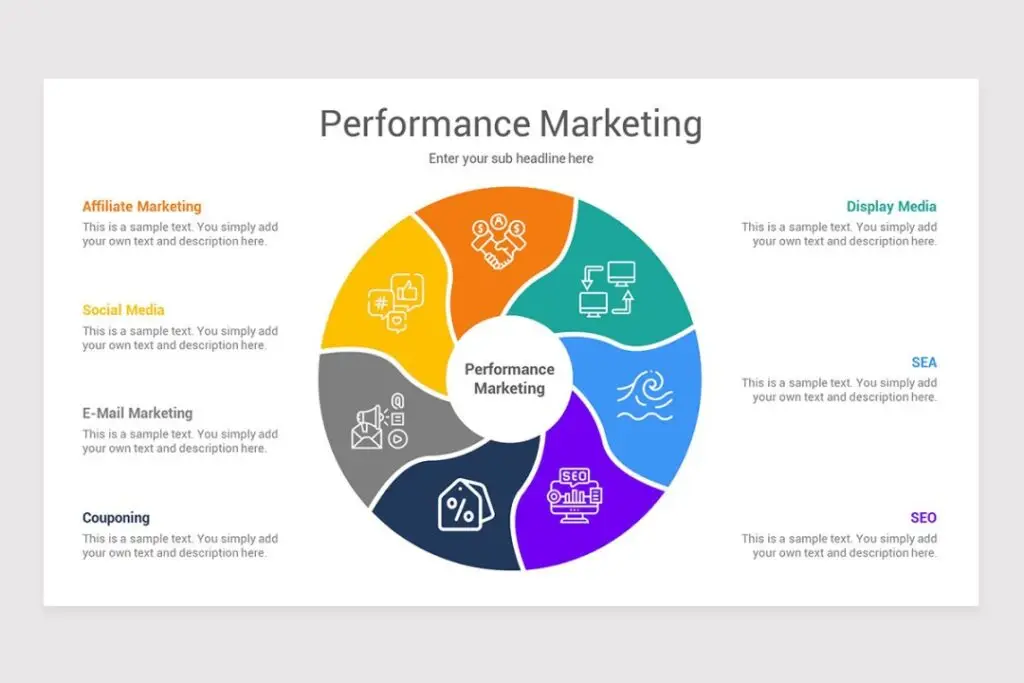Performance Marketing vs. Digital Marketing

Performance Marketing vs. Digital Marketing: Understanding the Key Differences
In today’s fast-paced digital world, businesses need effective marketing strategies. Two popular approaches are performance marketing and digital marketing. Though they may seem similar, they have distinct differences. This article will delve into these differences to help you choose the right strategy for your business.
What is Performance Marketing?
Performance marketing focuses on results. Advertisers pay only when specific actions occur, such as clicks, leads, or sales. This approach ensures that marketing budgets are spent efficiently. Key performance indicators (KPIs) guide these campaigns, making them highly targeted and measurable.
Key Benefits of Performance Marketing
Performance marketing offers several advantages. Firstly, it is cost-effective. Businesses only pay for actual results, reducing wasted spending. Secondly, it provides clear metrics. These metrics allow for easy tracking and optimization of campaigns. Lastly, performance marketing is highly flexible. It can be adjusted quickly based on real-time data.

What is Digital Marketing?
Digital marketing encompasses all online marketing activities. It includes various channels such as social media, email, SEO, and content marketing. This approach aims to create brand awareness, engage customers, and drive conversions through multiple touchpoints.
Key Benefits of Digital Marketing
Digital marketing is comprehensive. It covers a wide range of tactics to reach a broad audience. It also builds brand loyalty. By engaging customers on different platforms, businesses can create lasting relationships. Moreover, digital marketing is versatile. It allows for creative and diverse content, from blogs to videos.
Comparing Performance Marketing and Digital Marketing
Understanding the differences between performance marketing and digital marketing is crucial. Performance marketing is results-driven. It focuses on immediate outcomes like sales or leads. On the other hand, digital marketing is broader. It aims to build a brand and maintain customer relationships over time.
Cost Efficiency
Performance marketing is more cost-efficient. You pay only for specific results, ensuring a direct return on investment (ROI). Digital marketing, while potentially more expensive, provides long-term benefits. It helps in building a brand’s presence and reputation online.
Measurability
Both strategies offer measurability, but in different ways. Performance marketing relies on KPIs to track success. This makes it easier to quantify ROI. Digital marketing uses various analytics tools. These tools measure engagement, reach, and conversion rates across different channels.
Flexibility and Adaptability
Performance marketing allows for quick adjustments. Campaigns can be optimized based on real-time data. Digital marketing, though adaptable, often requires more time to see significant changes. It involves long-term strategies like SEO, which need consistent effort.
When to Use Performance Marketing
Performance marketing is ideal for businesses with clear, immediate goals. If you need to drive sales quickly or generate leads, this approach is suitable. It works well for short-term campaigns with specific targets.
When to Use Digital Marketing
Digital marketing is best for building brand awareness. If your goal is to engage with your audience and create a strong online presence, choose this approach. It supports long-term growth and customer retention.
Conclusion
Both performance marketing and digital marketing are essential in their own right. Choosing the right strategy depends on your business goals. For immediate results, opt for performance marketing. For comprehensive brand building, digital marketing is the way to go. By understanding these differences, you can make informed decisions and achieve your marketing objectives effectively.